China’s college entrance examination has been resumed over 40 years. Is it still a fair talents selection system for today?
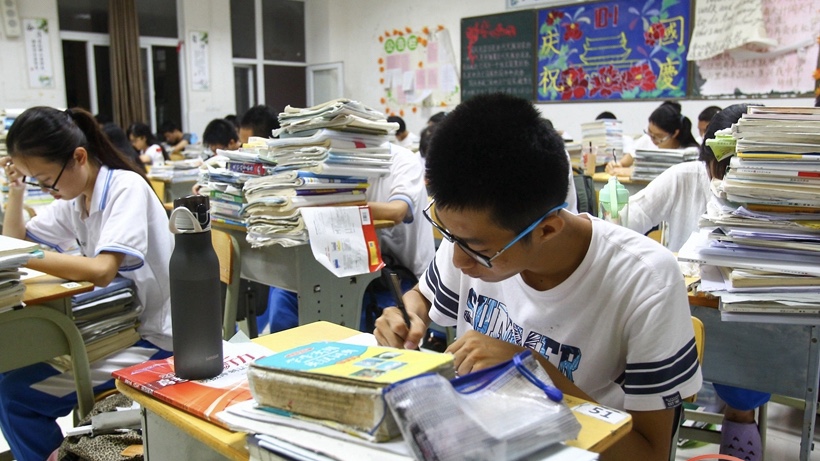
For Jia Jianming, 63, the place he communicated with his daughter most is around the dining table. During their meals, sometimes, he posed questions about the latest political, cultural news domestically and internationally, ranging from the US presidential election to Kosovo War. Alternatively, he told stories about Chinese or world history. Jia Jianming called it “dining-table culture”.
His daughter, Jia Shuqiao, has never been aware of the significance of such “culture” until she joined the Rice University in Houston, Texas for pursuing Ph.D. of Communication Engineering. She almost had no difficulties in chatting with her colleagues about the country’s culture, political system. “He guides me and nurtures me in such a long-term, unconscious way,” Jia Shuqiao said[1].
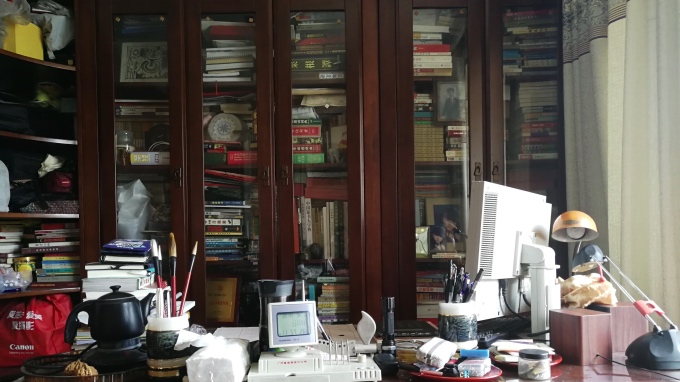
Jia Shuqiao is quite good at studying and was always at the top of class throughout the basic education. When she was just in Grade 9, 15-year-old, she was already admitted by Xi’an Jiaotong University (one of China’s top 9 universities, belongs to 985 Project). Every year, Xi’an Jiaotong University selects 130 outstanding students from middle school by means of specialised exams, interviews. Students being chosen could pursue bachelor’s as well as master’s degree directly in Xi’an Jiaotong University[2]. In 2005, among more than one thousand applicants, Jia Shuqiao made it.
Xi’an Jiaotong University has launched such policy of recruiting talents students for more than 30 years. Actually, more than 50 universities in China have the right to design their own procedure for selecting well-rounded students not only with higher grades, good learning ability, the sense of innovation but also non-intellectual factors such as emotional quotient, fitness, hobbies, etc.
The admission recommendation system was initially designed to diversify the admission channel to higher education by offering gifted students a direct pathway to universities. However, these “gifted students” approximately are all from intellectual families. In terms of the opportunity of benefitting from the recommendation system, children from middle class such as managers, officers are 73 times higher than those of farmers, according to academic research.
Students in less well-off families seem facing unfair competition now. In 1993, more than 40% of university students in China came from lower occupation families, such as farmers and workers; however, universities today are increasingly dominated by students from wealthy and more prosperous backgrounds. According to statistics from China’s Data Blog[3], the percentage of university students from rural families has dropped to 8.12%. Between 1980 and 2015, only 12% of the rural population received a full-time university education.
“Before, no matter who is your parents, everyone relies on the only college entrance examination to improve their life chances. It is different from now,” said Jia Jianming[4]. Jianming is a retired Director of Publicity Dept. of Xi’an Jiaotong University and this is also the school where he graduated from in 1978. After the reintroduction of college entrance examination in 1977, between 1977 and 1980s, Chinese experienced a period of equal education. “Education changes your fate” and “Equality of opportunities” were two popular slogans then.
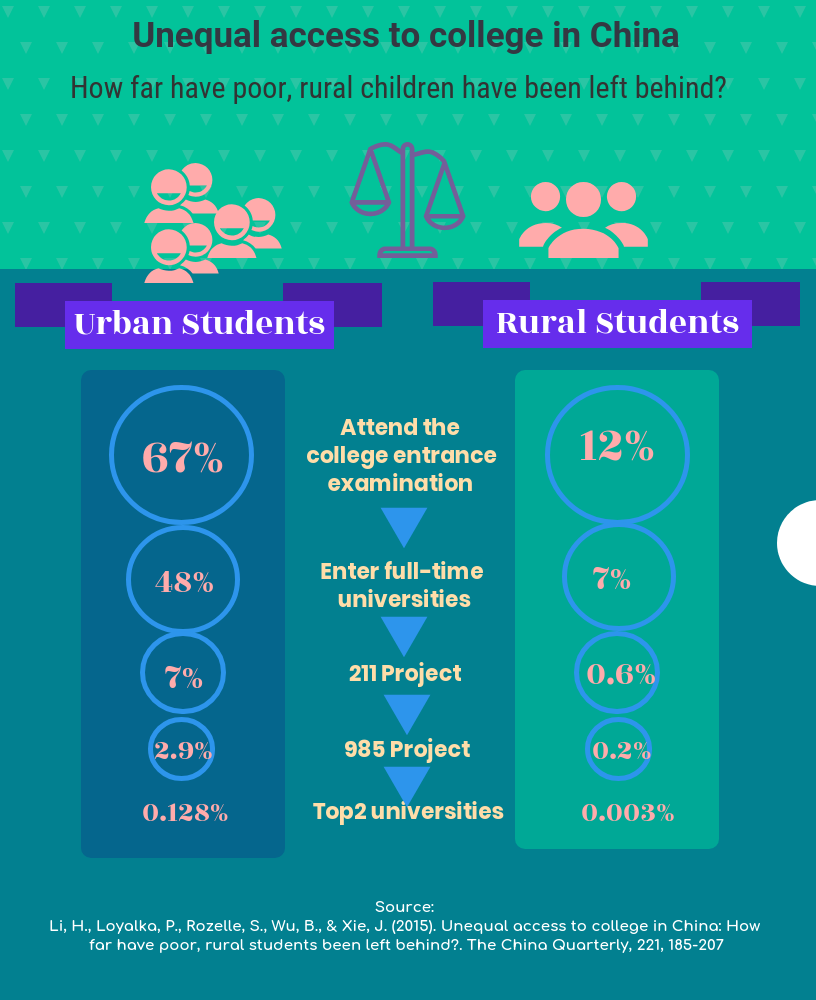
Students from lower class is becoming harder to keep up with well-off children. Luo Ansheng, 24, a recent graduate from Yan’an University, an ordinary university in Shannxi province, said[5], “Before I went to the university, I thought everyone needs to attend the college entrance examination. I had never known students could be admitted directly.” He grew up in a poor mountainous area. Until 16 years old, he stepped out of the mountain and went to the county for high school education.
Liu Fuxing, the researcher in China’s educational fairness in Beijing Normal University, commented[6], “Actually, education diversity serves negative impacts on education balance. The sense of innovation, emotional quotient, fitness, hobbies all have connections with family origins. When they are included in the evaluation system, obviously they cannot benefit agricultural families.”
However, the state has tried to tighten the policy. Since 2001, the annual number of students who can enter universities directly has been reduced to 5,000, according to statistics from Xinhua net. One of the reasons is that the recommendation process is easy to be manipulated through parents’ capital. The case of “fake gifted students” has been reported continuously, according to news from TenCent[7].
Capital manipulation still exists in other processes. The most common way parents make use of their capital is for obtaining children’s schooling opportunities. Han, a leader in Xinhua News Agency, Shannxi Branch, has written a propagandized interview feature for his classmates as well as the headmaster of the High School Affiliated to Xi’an Jiaotong University, Wang Peidong, in order to obtain daughter’s chance for this school.
“He is a celebrity politician and loves being publicized,” Han said[8]. Then Han told him, “My daughter only wanted to enter your school.” As Han expected, Wang said, “No problem. There are no extra ‘chairs’, but I can do that.”
Under the limited quota, behind the story of Han gains a quota for daughter, the opportunity of an ordinary student must be deprived. “The thing should be illegal. However, China’s law system is insufficient yet and such private thing is hard to avoid,” said Liu Fuxing[9], the researcher.
Parents regard such “benefit” as things that they should have. “A large number of parents cannot provide much help to children. For example, parents in the countryside, they do not have much money and they do not have any intellectual, high-status contacts. If I can, I want to make a child’s life less difficult,” Han said[10].
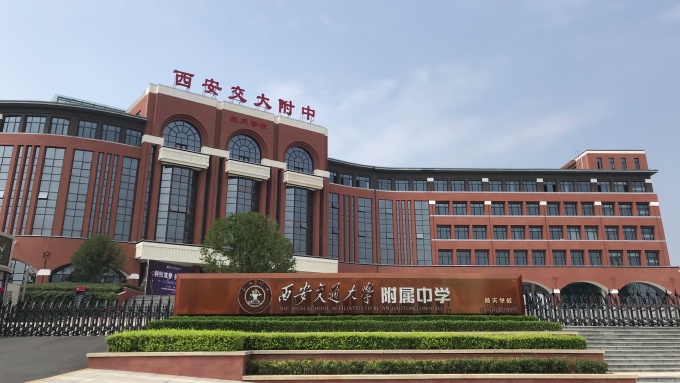
For Luo Ansheng, his parents did not receive any education. As the only college student in the family, he is the hope of the family. He said, “Honestly, before universities, I had hardly read any extra-curricular reading books, so when I chose the major, they were just names. My parents. They wanted to help me something, but they could not.”
In addition to these unique situations, the college entrance examination is still a unified test. “I would say, it has lowered the impact of families’ capital to the least. It is not the best, but it is not the worst” said Liu Fuxing.
This June, more than 10million examinees attended the college entrance examination and the number has broken the record since 2010. These examinees are facing the first turning point in their life. “The college entrance examination will remain the fairest way of assessment and selection,” said Lu Fuxing.
However, Lu’s thoughts have not been accepted widely. The scholar, Wang, believes the college entrance examination itself strengthens inequality in her Research on the influence of college entrance examination policies on the fairness of higher education admissions opportunities in China. The trend of examination has “fully transformed from one that measures knowledge to one that evaluates the students’ underlying level of intellectual ability”. However, intellectual ability linked to cultural capital which largely relies on family origins. For example, teaching materials tend to contain more “urban preferences” such as “stocks”, “chain store” which are unfamiliar to rural students.
The college entrance examination has complained about its old-fashioned style and inflexibility. In 2017’s the college entrance examination, the Chinese subject appeared modern words, sharing economy, high-speed railway, etc. However, this has been criticized by experts in education because students in rural areas have not known fast-changing China outside their small hometowns.
A director of the Teaching and Research Department, Bureau of Education in Gansu Province said to China Youth News[11], “In recent years, college entrance examination compositions are encouraged to be innovative. However, sometimes it ignores the cognitive feelings of rural students and does not take into rural students’ personal experience into consideration.”
It is hard to balance the excellence and equality in educational system and policy is to negotiate the conflict between them. The equal educational system does not deny the individual variation and provide absolute same education to everyone.
Lu Fuxing thinks, “It should be based on admitting individual differences, what the individual has gained is consistent with the persons’ qualities, abilities, and contributions.” Namely, according to students’ own performance for allocating educational resources, then students can effectively utilize the educational opportunities to achieve their academic success and life chances. It should not be based on external factors such as family backgrounds, social status, and economics.
“The government still should take more responsibilities,” Lu Fuxing said. Examinations are not well-off children’s only approach to get into high-quality universities and better future. However, for Luo Ansheng, “When some people were born, they almost have got everything. At my starting point, I had nothing. Examinations might be my only way. At least, I hope so,” he said.
Now, Luo quitted his job in Chengdu and get back to his hometown. He decided to prepare for applying for a master’s course. “I believe I still need to improve, and I believe in education. It’s a good choice for me definitely,” said Luo, “if you are not satisfied with your job, going back to school would always be a choice.”
Meanwhile, on the other side of our planet, Jia Shuqiao has received job admission from Apple in San Francisco. She decided to accept the offer. However, she has to give up her unfinished PhD. Degree. “They offered me a very good chance which I cannot ignore, and I can keep researching in Apple, so why not,” Jia Shuqiao said. Jia Jianming will go there to visit her monthly. He is following his daughter’s step now.
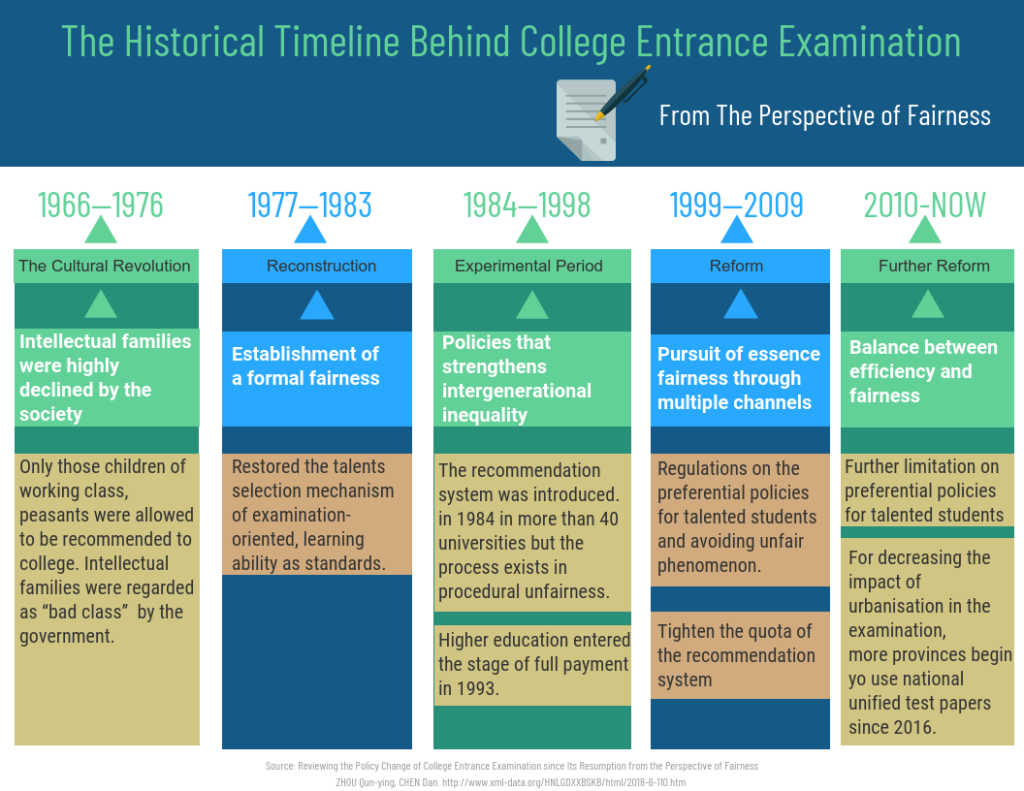
[1] Face-to-face Inteview, June 10, Xian
[2] http://zs.xjtu.edu.cn/info/1004/3953.htm
[3] http://data.163.com/18/0811/10/DOU0874Q000181IU.html
[4] Face-to-face Inteview, June 10, Xian
[5] Face-to-face interview, June 21, Shuiwei village
[6] WeChat interview, August
[7] http://www.xinhuanet.com/comments/2018-06/06/c_1122942320.htm
[8] Face-to-face interview, June 12, Xian
[9] WeChat interview, August
[10] Face-to-face interview, June 12, Xian

